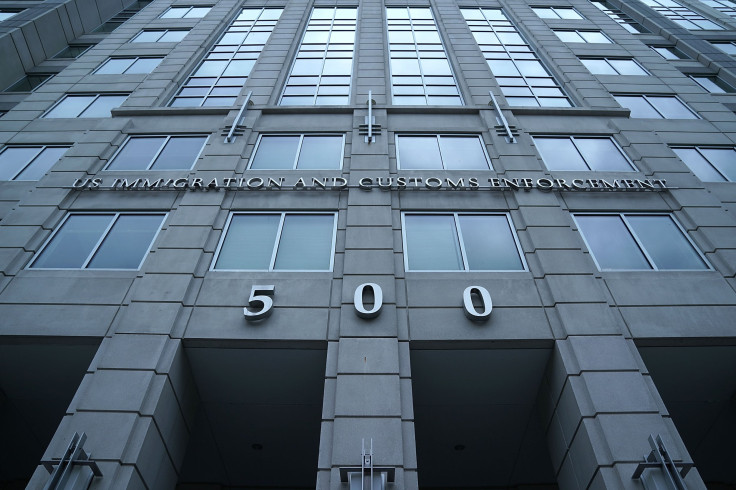What Is Force-Feeding? ICE Detainees Allege Torture In Texas Facility

The U.S. Immigration and Customs Enforcement (ICE) officers were allegedly force-feeding nine detainees on a hunger strike at a facility in El Paso, Texas.
A 22-year-old man from India, one of the protesters who stopped eating more than a month ago, reached out to the Associated Press in early February and said he was being force-fed by a group of people. They allegedly poured liquid food into tubes which were pushed through his nose.
"They tie us on the force-feeding bed, and then they put a lot of liquid into the tubes, and the pressure is immense so we end up vomiting it out. We can't talk properly, and we can't breathe properly. The pipe is not an easy process, but they try to push it down our noses and throats,” the man, identified only by his last name Singh, said, adding he had lost over 50 pounds since he began the strike.
The man began the strike to protest the unfair treatment of detainees from Punjab, India, including him at the facility. He said while detainees from other countries were given bond, they were denied the privilege.
Speaking to social justice organization SAALT, Ruby Kaur, an attorney representing two of the hunger strikers, said, “They have scars on their arms from IVs, and are suffering from rectal bleeding and blood in their vomit in addition to persistent stomach, chest, and throat pain. They recounted abuse after abuse at the hands of ICE agents and medical staff at the facility. They’ve lost 40 to 50 pounds.”
Amrit Singh, whose two nephews were in the facility, said the men were having persistent nose bleeds, CBS-affiliated television station licensed KVAL reported.
In a statement ICE said they respect people’s rights to voice out concerns and opinions.
"ICE does not retaliate in any way against hunger strikers. ICE explains the negative health effects of not eating to our detainees. For their health and safety, ICE closely monitors the food and water intake of those detainees identified as being on a hunger strike," the agency said.
Force-feeding in layman's terms refers to feeding an individual against will by means of a plastic feeding tube passed through the nose or mouth into the stomach. Though some countries like the U.S. and the United Kingdom force-feed prisoners on hunger strike, the practice is condemned by both the American Medical Association and the Red Cross who called it “ethically unacceptable.”
The World Medical Association too released guidelines specifically to address force-feeding. It stated that if a prisoner refuses food, “he or she shall not be fed artificially.”
The American Medical Association, on several occasions, had also expressed concerns about physicians participating in the force-feeding of hunger strikers inside ICE facilities.
Despite this, the governments continued to force-feed prisoners. The practice is frequent in the U.S. military prison in Guantanamo Bay. This prompted over 250 doctors to write an open letter against it in 2006.
The United Nations human rights office on Thursday said the U.S could be violating the UN Convention against Torture, an international human rights treaty that aims at preventing torture and other inhumane acts, by force-feeding the hunger strikers inside the El Paso detention facility.
Not just force-feeding, the detainees have also alleged torture and ill-treatment inside the facility. Kaur said the nine detainees were thrown into solitary confinement and also threatened with deportation despite them not being physically fit to travel.
“They told me ICE agents have threatened them with deportation as early as Friday morning, despite them being in no physical condition to travel. ICE agents responded that there was nothing that they could do and that they didn’t care,” she said.
© Copyright IBTimes 2024. All rights reserved.





















